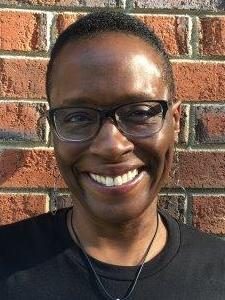Central America Travel Seminar: Our last morning in Guatemala
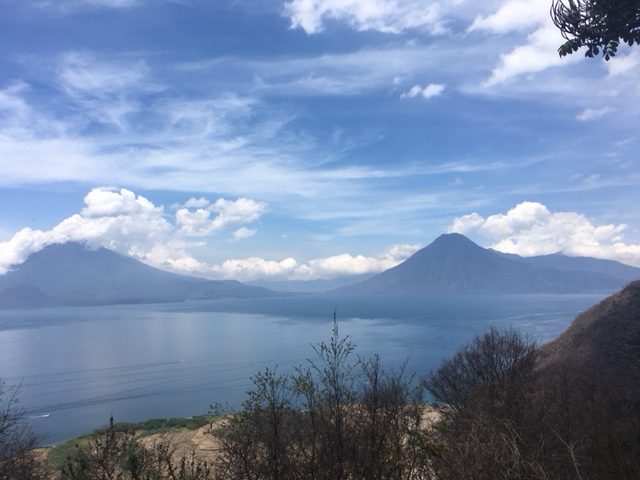
BY GAIL HENDERSON
I woke up on the morning of our final full day in Guatemala to the sound of birdsong here in Santiago Atitlan, at the Hotel Tiosh Abaj, which means “sacred stone.”
We spent nearly four hours beside that sacred stone last night, being led in a colorful, profoundly meaningful Mayan ceremony. Candles, incense, the husks of the pineapple tree, cocoa, sugar, candy, and other gifts were offered in a ceremonial fire. Prayers of gratitude and hope, prayers for courage and strength, and prayers asking for forgiveness and healing were offered over that fire. It was moving and beautiful, haunting and also unexpectedly familiar. It was a comforting end to a day that didn’t always feel comfortable.
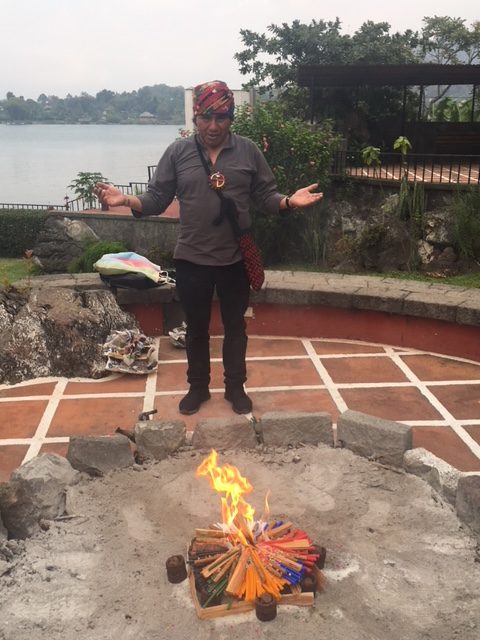
We began our day yesterday with the sad realization that two of our number would not be joining us here in Santiago Atitlan. They needed to stay behind in Antigua and rest. Fortunately, the CEDEPCA team did what they do so well – they made arrangements for our two companions to be cared for in the gorgeous Las Camelias hotel.
The rest of us set off on another epic adventure. Over the mountains. Down the mountains. Around impossible curves – made possible by our ridiculously skilled driver, Roberto. We arrived safely in Panajachel, at the edge of Lake Atitlan. There, we got onto a boat that took us across the lake directly to the dock of the hotel here, Tiosh Abaj. That boat ride rattled our bones, rearranged some internal organs, and loosened dental fillings – and more than once, I reminded myself of Jesus’ statement to the disciples – “Let’s go to the other side of the lake.” I kept telling myself we were going to the other side. We weren’t going to sink. Thanks be to God – we made it. Later today, we will take that same boat back across that same lake. I hope it’s less choppy than it was yesterday. I must admit that the lake was more beautiful than the ride was bumpy.
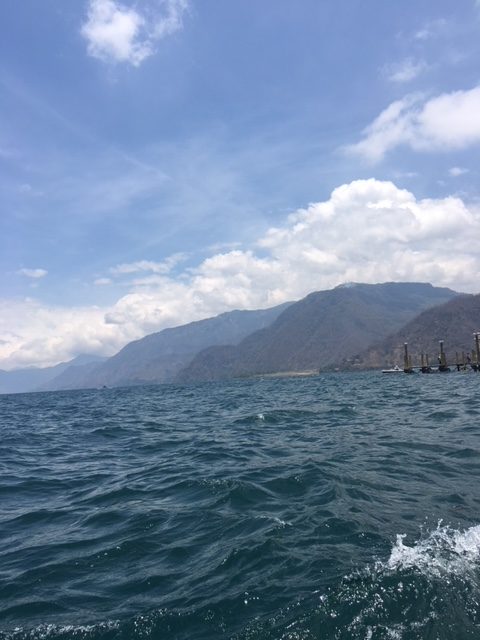
As our trip winds down, as our hearts and minds turn for home, I find myself pondering the highlights and lowlights of this trip. The stories of courage and of martyrdom. The stories of deportation and resettlement. Stories with tears streaming down cheeks. Stories with laughter. I remember the game we played back at the hotel one night after a day of heartbreaking stories of violence and murder, of injustice and impunity. We needed to laugh that night. I look back through my journal and am reminded of visits to museums that happened less than a week ago, but feel like they took place three months ago.
It has been a long trip. Many miles. Many stories. Many faces. Many names.
It has been a short trip. Much of what we have heard and seen here has taken place in the past 40 years. And all of this has taken place within a radius of a five or six-hour flight from where we live. Not far away – but also an entire world away.
I hope and pray that as we pack and prepare to head home tomorrow, we will take more than souvenirs. More than bug bites. More than memories of stomach bugs and bumpy bus rides. More than notes on our seminary related conversations.
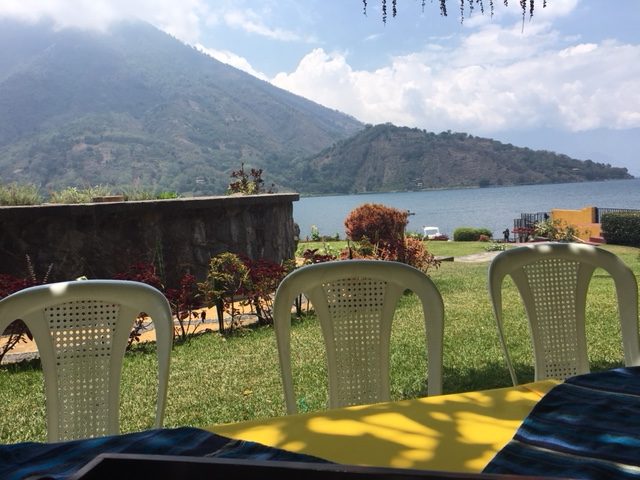
I hope and pray that we will take stories of hope and resistance. Stories of strength and determination. Stories of our country’s direct involvement with so much of the economic and political injustice, inequality, and inequity that prevail here. Much of the government-directed violence against the people of El Salvador and Guatemala, violence that defined the decades between 1960 and 2000 here in Central America was funded by the United States, and many of the military leaders from this part of the world were trained by our country’s military. That is a sad truth that we must take home and that must affect how we see migrants who flee the ongoing poverty and violence here and try to make their way to a new life.
I hope and pray that the stories we have heard and the heartbreak we have felt will come back home with us and keep us always mindful of the price that many have paid and continue to pay in their witness for the gospel of Jesus Christ and for the redemption of the world that Jesus came to save. May we go home as witnesses and as teachers and as preachers of hope, subversive hope, bold hope, and Godly hope in the face of the worst that humanity is capable of inflicting on humanity. May we speak truth to and about power. May we be forever changed by what we have seen and heard here, and by what we have felt and learned here. Above all else, May Jesus Christ be praised and glorified by those who witness for peace and reconciliation here in Guatemala, down in El Salvador, and also in our nation, in our lives, and at Union Presbyterian Seminary as we live out what we have lived in and lived through on this journey.
Gail Henderson is a Master of Divinity student at Union.
